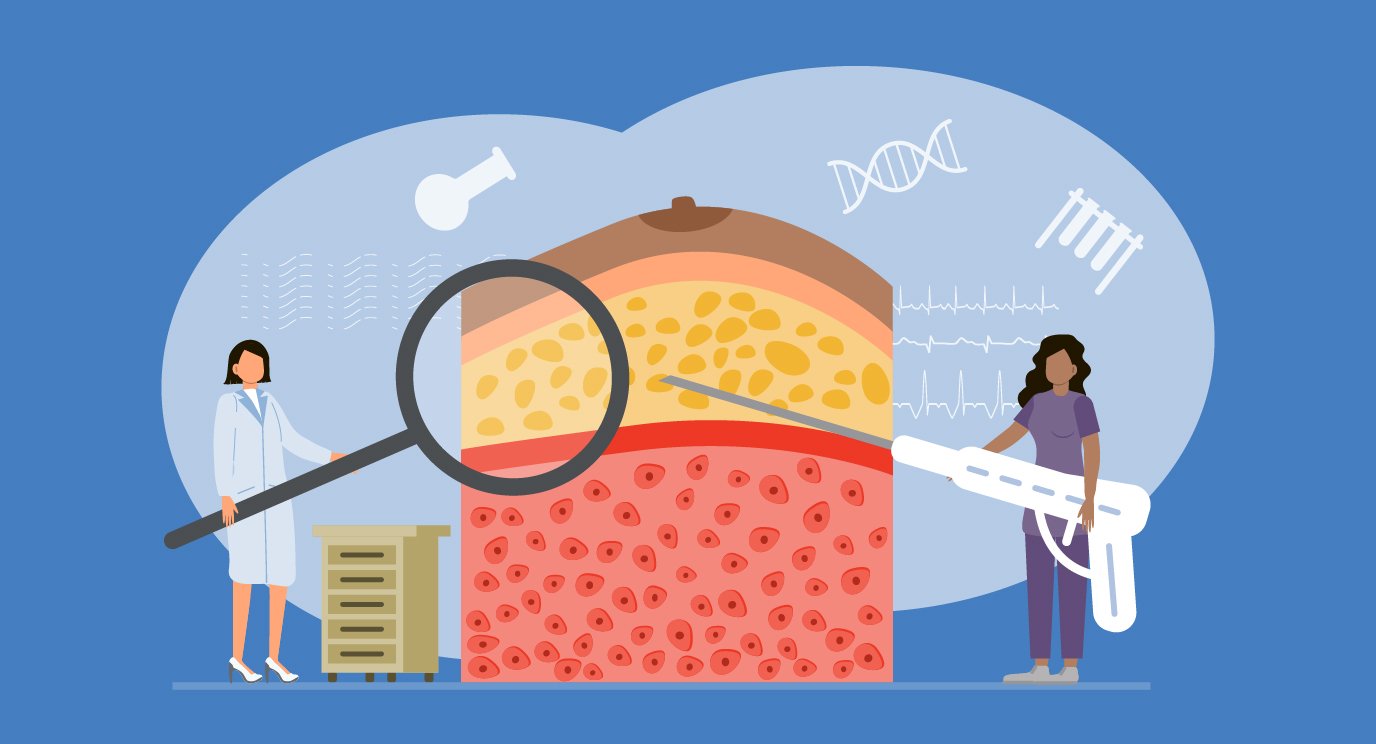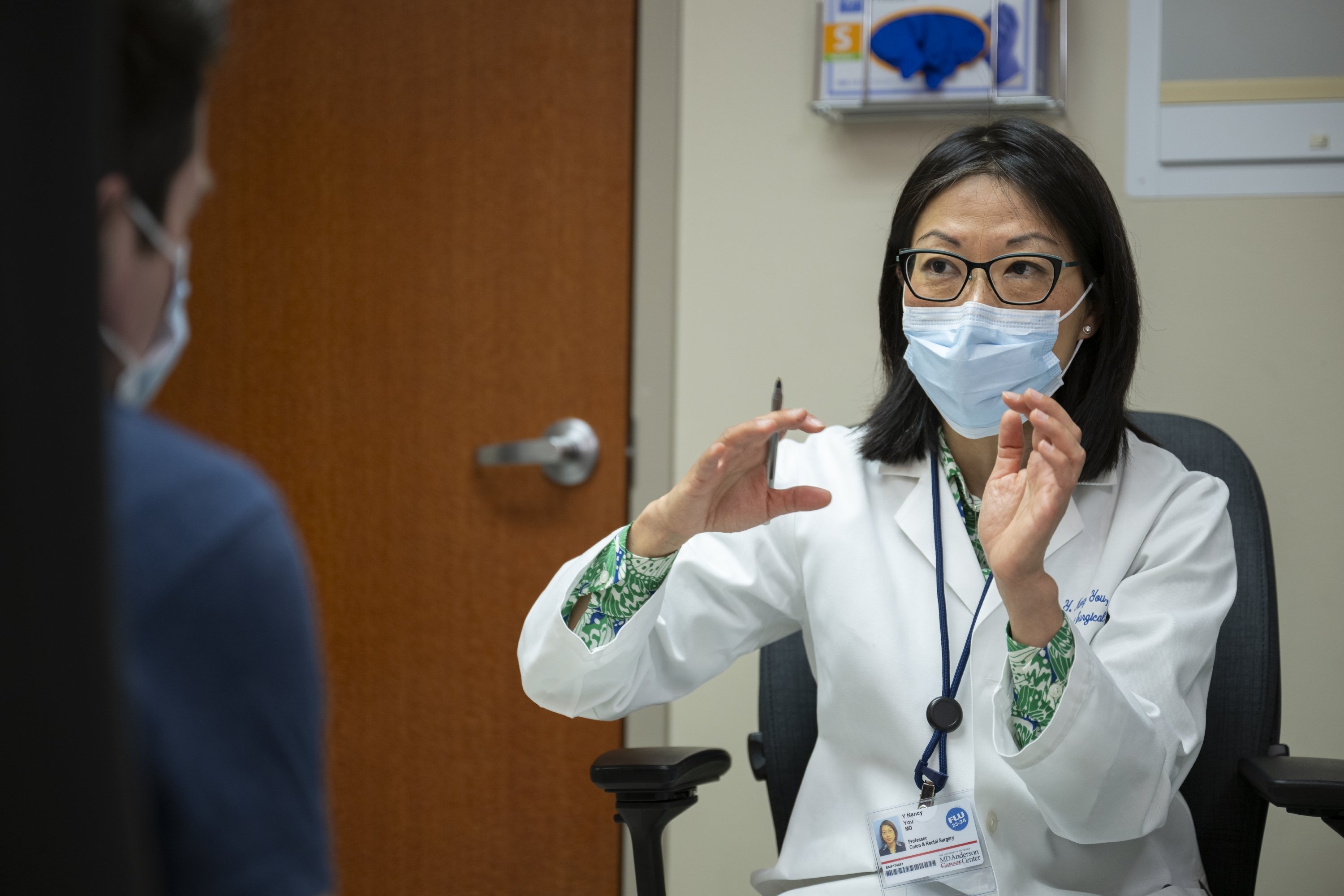- Diseases
- Acoustic Neuroma (14)
- Adrenal Gland Tumor (24)
- Anal Cancer (68)
- Anemia (2)
- Appendix Cancer (16)
- Bile Duct Cancer (26)
- Bladder Cancer (72)
- Brain Metastases (28)
- Brain Tumor (232)
- Breast Cancer (714)
- Breast Implant-Associated Anaplastic Large Cell Lymphoma (2)
- Cancer of Unknown Primary (4)
- Carcinoid Tumor (8)
- Cervical Cancer (158)
- Colon Cancer (166)
- Colorectal Cancer (118)
- Endocrine Tumor (4)
- Esophageal Cancer (44)
- Eye Cancer (36)
- Fallopian Tube Cancer (8)
- Germ Cell Tumor (4)
- Gestational Trophoblastic Disease (2)
- Head and Neck Cancer (12)
- Kidney Cancer (128)
- Leukemia (342)
- Liver Cancer (50)
- Lung Cancer (286)
- Lymphoma (278)
- Mesothelioma (14)
- Metastasis (30)
- Multiple Myeloma (100)
- Myelodysplastic Syndrome (60)
- Myeloproliferative Neoplasm (6)
- Neuroendocrine Tumors (16)
- Oral Cancer (100)
- Ovarian Cancer (172)
- Pancreatic Cancer (160)
- Parathyroid Disease (2)
- Penile Cancer (14)
- Pituitary Tumor (6)
- Prostate Cancer (146)
- Rectal Cancer (58)
- Renal Medullary Carcinoma (6)
- Salivary Gland Cancer (14)
- Sarcoma (238)
- Skin Cancer (296)
- Skull Base Tumors (56)
- Spinal Tumor (12)
- Stomach Cancer (64)
- Testicular Cancer (28)
- Throat Cancer (92)
- Thymoma (6)
- Thyroid Cancer (98)
- Tonsil Cancer (30)
- Uterine Cancer (80)
- Vaginal Cancer (16)
- Vulvar Cancer (20)
- Cancer Topic
- Adolescent and Young Adult Cancer Issues (20)
- Advance Care Planning (10)
- Biostatistics (2)
- Blood Donation (18)
- Bone Health (8)
- COVID-19 (362)
- Cancer Recurrence (120)
- Childhood Cancer Issues (120)
- Clinical Trials (632)
- Complementary Integrative Medicine (22)
- Cytogenetics (2)
- DNA Methylation (4)
- Diagnosis (232)
- Epigenetics (6)
- Fertility (62)
- Follow-up Guidelines (2)
- Health Disparities (14)
- Hereditary Cancer Syndromes (126)
- Immunology (18)
- Li-Fraumeni Syndrome (8)
- Mental Health (116)
- Molecular Diagnostics (8)
- Pain Management (62)
- Palliative Care (8)
- Pathology (10)
- Physical Therapy (18)
- Pregnancy (18)
- Prevention (918)
- Research (392)
- Second Opinion (74)
- Sexuality (16)
- Side Effects (604)
- Sleep Disorders (10)
- Stem Cell Transplantation Cellular Therapy (216)
- Support (402)
- Survivorship (322)
- Symptoms (182)
- Treatment (1786)
My thymoma treatment: Why I chose MD Anderson
3 minute read | Published July 25, 2019
Medically Reviewed | Last reviewed by an MD Anderson Cancer Center medical professional on July 25, 2019
When I found out I had thymoma — a rare tumor of the thymus gland — I knew I couldn’t stay in South Texas for my treatment.
I’d been convinced for more than a decade that something was wrong with me, but nobody ever connected any of my symptoms with the mass growing slowly behind my sternum.
Over the years, I’d seen a cardiologist for heart palpitations, a gastroenterologist for swallowing problems, an ophthalmologist for vision problems, a dermatologist for skin rashes, a neurologist for a facial weakness, an endocrinologist for thyroid problems and a rheumatologist for joint pain. It turns out all of those could’ve been caused by the tumor. But the only diagnoses I received were Hashimoto’s disease (a type of hypothyroidism) and Sjorgen’s syndrome. Both are considered autoimmune disorders.
Then, in June 2018, I had a chest X-ray in preparation for a minor surgical procedure. It revealed a tumor the size of a tennis ball beneath my breastbone. My doctor wanted to refer me to yet another specialist: a thoracic surgeon.
Instead, I called MD Anderson. As a school nurse, I knew that mine was an uncommon type of tumor, so I needed a higher level of expertise than I could find in Laredo.
My thymoma treatment
The following week, I traveled to Houston to meet with thoracic surgeon Dr. Mara Antonoff, pulmonary medicine specialist Dr. Edwin Ostrin and oncologist Dr. Phat Le at MD Anderson. They confirmed my chest tumor was an invasive thymoma and recommended chemotherapy to shrink it, then surgery to remove it.
Unfortunately, the tumor didn’t respond much to chemotherapy. However, we were still able to move ahead with surgery, which was planned for about six weeks after I finished the chemo. It was very intense. Dr. Antonoff had to open my sternum to get at the tumor, just like in open-heart surgery. Luckily, she was able to remove the whole thing.
After the surgery, Dr. Antonoff shared more good news: the cancer hadn’t spread. But because the tumor had invaded some of the surrounding tissues, she wanted me to have radiation therapy daily for five weeks to kill any remaining cancer cells. I started radiation at MD Anderson in Sugar Land on Feb. 25, 2019, and finished on March 29.
Finding expertise and reassurance at MD Anderson
Today, my thymoma is considered in remission. But I’m still dealing with some side effects from my treatment, such as chemobrain.
Still, I know that going to MD Anderson was the right decision. Everyone from the valet parking attendants to the employees I’d stop in the hallways to ask for directions was so awesome and helpful. They all made me feel so comfortable, and that gave me real peace of mind.
I found the reassurance I needed the minute I set foot inside MD Anderson’s doors, too. When Dr. Ostrin said, “Don’t worry. We’ve got you,” I knew that I was in the right place. And I was going to be OK. It turns out I was right.
Request an appointment at MD Anderson online or by calling 1-844-745-2713.

I needed a higher level of expertise.
Cynthia Sanchez
Survivor





